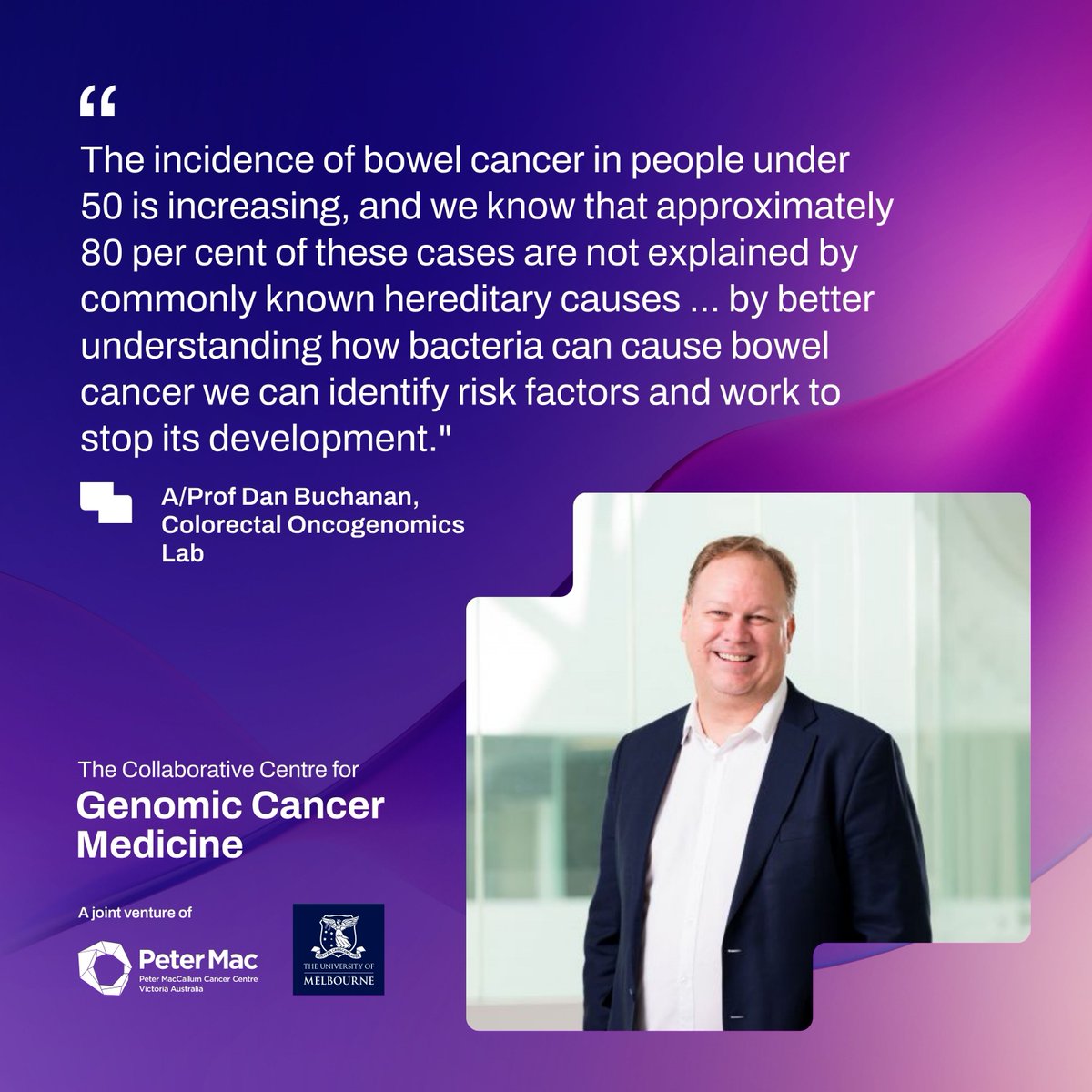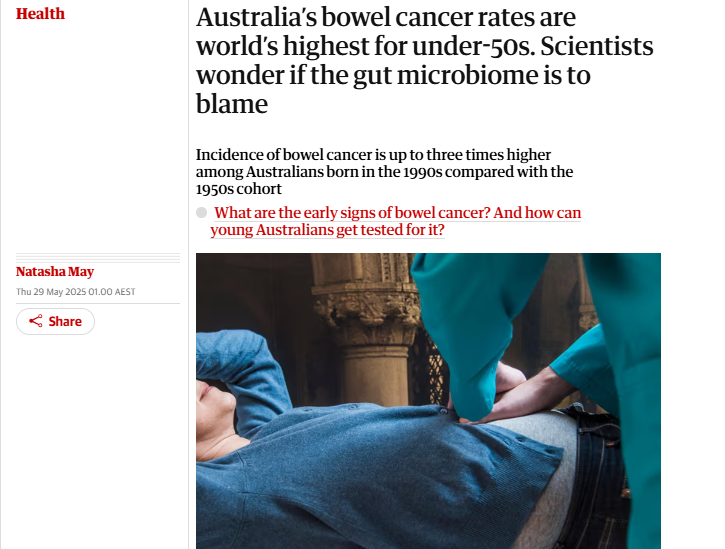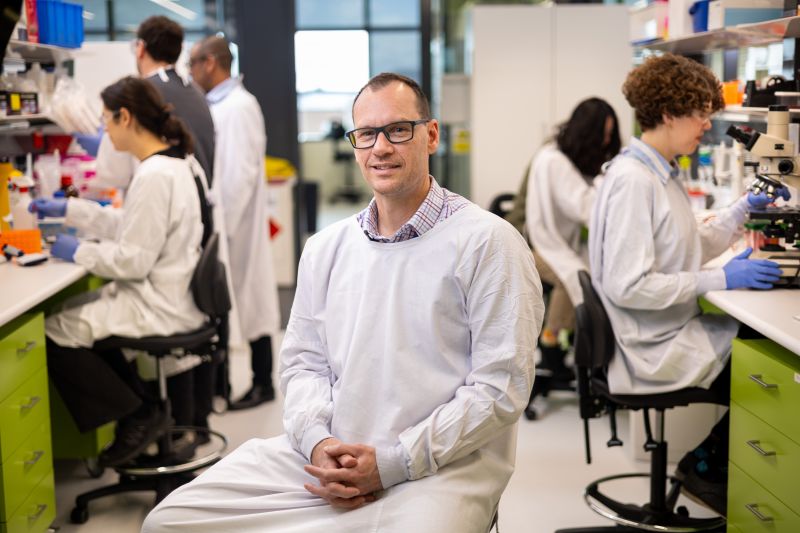
Collaborative Centre for Genomic Cancer Medicine
@GenCancerCentre
Followers
2K
Following
3K
Media
1K
Statuses
4K
Pioneering breakthroughs for people with cancer—a joint venture between @Unimelb and @PeterMacCC.
VCCC, Melbourne, Victoria
Joined February 2018
RT @OzMRS1: The @GenCancerCentre at @UniMelb is seeking a Senior Research Fellow/Group Leader to drive advances in genomic cancer medicine….
0
5
0
June is #BowelCancerAwarenessMonth. In this 2023 OpEd, Professor Mark Jenkins, lead of our Precision Prevention and Early Detection of Colorectal Cancer group, argues for the importance of bowel cancer detection kits in saving lives. ➡️Read:
0
1
1
June is #BowelCancerAwarenessMonth. Did you know that bowel cancer is not just an older person’s disease? Young people aged 15 to 24 have recorded a 266 per cent increase in diagnoses in the last 30 years. ➡️ Read A/Prof Dan Buchanan's interview in ABC:
0
1
1
June is #BowelCancerAwarenessMonth & to mark it we are revisiting our archives. In this piece in Pursuit, Angie Plummer explores the rising rates of Bowel Cancer in young people–and how DNA damage caused by gut bacteria may be a key part of the puzzle. ➡️
0
0
1
To mark #BowelCancerAwarenessMonth, we are revisiting the work of our world-leading researchers. Can a blood test from your GP help earlier diagnosis of colorectal & lung cancers? A 2024 study found that a simple blood test could expediate diagnosis: ➡️
0
0
0
To mark #BowelCancerAwarenessMonth we are revisiting the work of our world-class researchers—this year, scientists from our Colorectal Oncogenomic lab found that studying DNA from bowel polyps can identify people with hereditary bowel cancer syndromes:. ➡️
0
0
3
June is #BowelCancerAwarenessMonth. A/Prof Dan Buchanan leads our Colorectal Oncogenomics Group, conducting important research that explores the ways in which gut bacteria can cause early-onset bowel cancer. Read more:➡️ @CancerCouncilOz @BowelCancerAust
0
1
4
⚕️ June is #BowelCancerAwarenessMonth. As rates of disease rise, the focus is on improving diagnosis. Genomic testing can be used to recommend the type and timing of bowel cancer screening, but would people want to take a test predicting their risk? . ➡️
0
1
2
⚕️Around 99% of people with #BowelCancer survive if it is identified early. So what can we do to diagnose sooner? Professor Mark Jenkins spoke to @RadioNational last week about his recent study on early-onset Bowel Cancer & screening for under-50s. 🎧Go:
0
1
5
📈Why are rates of early-onset #BowelCancer in Australia the highest in the world?. A/Prof Dan Buchanan spoke to @GuardianAus Australia about recent research by himself and colleagues from @UniMelb which found cases are increasing by up to 8% per year. ➡️
0
1
4
Australia has the highest rates of bowel-cancer for under 50s in the world, being 2-3 times more common in people born in the 1990s compared to those born in the 1950s. Prof Mark Jenkins appeared on @7NewsAustralia on Tuesday discussing this rise. Watch:
0
0
1
RT @PeterMacCC: 🧬 New research in @Nature shows advanced genomic testing can help more people with #Cancer of Unknown Primary get targeted….
0
9
0
🧬Whole genome & transcriptome sequencing could improve precision treatment & identify tissue of origin for cancers of unknown primary (CUP), finds a study led by A/Prof @rtothill & Prof Linda Mileshkin (@PeterMacCC), published today in @NatureComms. ➡️
0
0
4
📊 We know that earlier cancer diagnosis leads to better survival rates – so how can we better use the data we have to guide faster testing and treatment? . Prof Jon Emery argues for the importance of connected health data in @UniMelb's Pursuit. ➡️Read:
0
0
1
📹Learn more about our labs and researchers, working hard to pioneer advances in genomic cancer medicine: #CancerGenomics #CancerCare #CancerMedicine #genomics.
0
0
1
On Friday 9 May we were honoured to welcome Prof Emma Johnston AO, Vice-Chancellor of the University of Melbourne, for a tour of the Collaborative Centre for Genomic Cancer Medicine, a joint venture between the @UniMelb and @PeterMacCC–together changing the face of cancer care.
1
0
2











